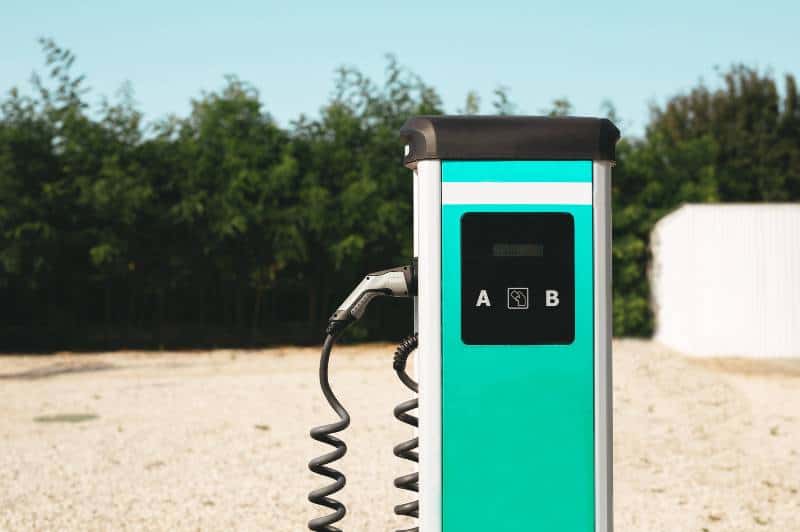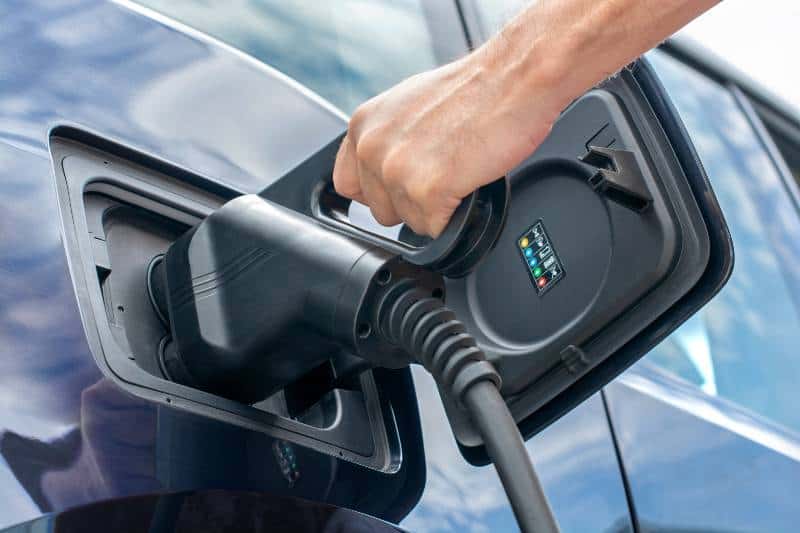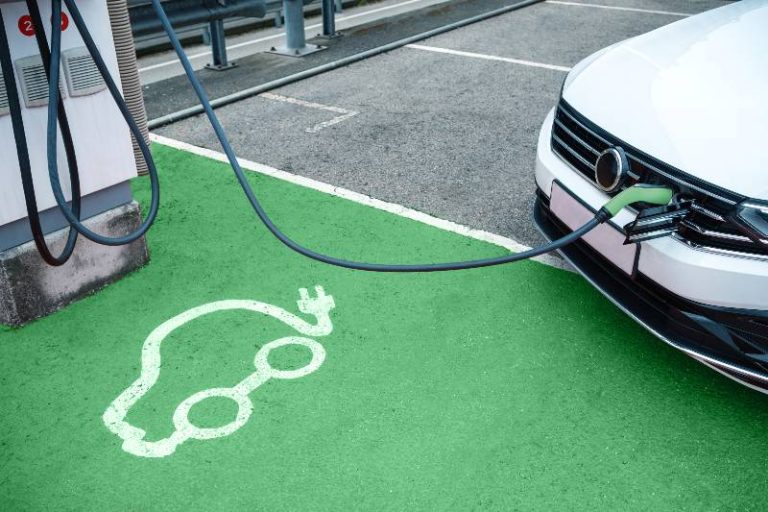The Electric Revolution: Implications for the Oil and Gas Industry
In recent years, the rise of electric cars has caused a huge shift in the automotive industry. Not only are these vehicles more eco-friendly and cost-effective for consumers, but it has also had a profound impact on the oil and gas industry too. With more cars switching to electric power, traditional petroleum companies find themselves having to adjust their strategies to stay competitive in a rapidly changing market. In this blog post, we’ll look at how the development of electric cars is changing the dynamics of the oil and gas industry and what businesses must do to survive in an increasingly green world.
By 2030, the U.S. government plans to increase its share of electric cars in new car sales further – with an ambitious target of reaching 50%. This goal could lead to a significant reduction in crude oil demand by 34%, furthering our country’s commitment to sustainability and environmental protection.
Key Takeaways
- The rise of electric cars has had a significant impact on the oil and gas industry.
- With sales expected to increase by 2030, traditional petroleum companies will have to find ways to adjust their strategies to remain competitive.
- This could lead to decreased demand for crude oil and other natural resources. To stay afloat, businesses must consider investing in green energy.

Electric cars have seen a huge resurgence in popularity over the past two decades. As our understanding of the potential harms of internal combustion engines increase and air pollution becomes an increasingly pressing issue, governments and businesses alike are investing more in electric vehicle technologies.
The definition of an electric car is a vehicle that utilizes electric power to propel itself forward, primarily powered by a battery or fuel cell. Early versions of the electric car, dating back to the 19th century, were mainly used for short distances such as traveling around town or making deliveries. However, with advancements in battery technologies, electric vehicles have become legitimate rivals for traditional fossil-fueled cars.
Nowadays, many electric cars rival other cars on features and performance – making them as attractive or even more attractive than their gasoline counterparts. With technology advances promising further improvements in the near future and becoming increasingly affordable, it appears there could be no limit to how far the electric car revolution will progress.
The Oil and Gas Industry
The influence of the oil and gas industry has become far-reaching, thanks in large part to its primary function of supplying the majority of the world’s energy needs. The processes and systems required to produce and distribute these essential resources are highly complex and require considerable capital investment along with state-of-the-art technology.
This is why it is important that key players in the industry, such as the Federal Energy Regulatory Commission (FERC) set regulations over oil and gas companies, and the Bureau of Land Management (BLM) which oversees administrative duties related to federal onshore lands, stay up-to-date on all industry developments. With electric cars already making a significant impact, stakeholders need to be aware of any changes that may affect the oil and gas market going forward.
The Impact of Electric Cars on the Oil and Gas Industry
Decrease in demand for gasoline
Electric cars are becoming increasingly popular, leading to a drop in demand for gasoline and creating major disruptions to the oil and gas industry. Matthew Parry, head of long-term forecasting at consultancy Energy Aspects, predicts consumption will fall by around 15% in the next five years due to a large increase in both electric vehicle sales and usage.
This could mean a decrease in global oil demand of 1.4 million barrels per day by 2027, which is considerable. Even though people may focus on what this means for car owners, there’s no doubt that the change in technology also has major implications for oil and gas companies all across the world.
An electric car could be the perfect choice for you! Discover what advantages this option can bring to your life – from cost savings and environmental gains, there are plenty of reasons why switching may provide a great solution, read it here!
Decrease in demand for crude oil
The emerging popularity of electric cars is having a direct effect on the oil and gas industry. According to recent estimates, more and more people are opting for electric vehicles over traditional gas-powered ones. This could result in a drastic decrease in the demand for crude oil – as early as 2023, we could see a global shortfall of up to 2 million barrels per day.
That number is capable of triggering a major crisis on par with 2014’s, underscoring just how revolutionary this shift away from fossil fuels can be. While researchers predict that electric, car sales and demand will continue to grow along a compound annual growth rate of 60 percent, it likely won’t stay this way forever – meaning that the oil and gas industry needs to begin preparing for far-reaching changes swiftly.
Negative impact on the Oil and Gas Industry
The widespread adoption of electric cars could have a negative impact on fuel efficiency and the oil and gas industry in several ways:
- Reduced demand for gasoline: Electric cars do not use gasoline, which is the primary product of the oil refining industry. As more people switch to electric cars, the demand for gasoline will decrease, which could lead to a decrease in oil refining capacity and a reduction in oil prices.
- Reduced demand for oil: In addition to gasoline, oil is used to produce many other products, such as plastics, chemicals, and asphalt. If electric cars become more prevalent, the demand for these products may decrease as well, leading to a reduction in oil production and sales.
- Decreased investment in new oil exploration and production: As demand for oil decreases, the profitability of new oil exploration and production may decrease as well, leading to decreased investment in these areas.
- Increased competition: Electric cars represent a new and growing competitor to traditional internal combustion engine vehicles, which could lead to increased competition in the automotive industry.
The impact of electric cars on the oil and gas industry is likely to be negative, as it could lead to reduced demand for gasoline and other oil-based products, decreased investment in new oil and gas exploration and production, and increased competition in the automotive industry. However, the extent and timing of these impacts will depend on the rate of adoption of electric cars and the response of the oil and gas industry.
Positive impact on the Oil and Gas Industry
While the widespread adoption of electric cars is expected to have a negative impact on gasoline cars and the oil and gas industry, there are also some potential positive impacts, including:
- Increased demand for electricity: As more people switch to electric cars, there will be an increased demand for electricity to power these vehicles. This could lead to increased demand for natural gas, which is used to generate electricity in many parts of the world.
- New business opportunities: The development and production of batteries, charging infrastructure, and other components for electric cars could create new business opportunities for companies in the oil and gas industry. For example, oil and gas companies could potentially invest in battery technology research and development or charging station infrastructure.
- Greater energy efficiency: Electric cars are generally more energy-efficient than internal combustion engine vehicles, which means that they require less energy to travel the same distance. This increased energy efficiency could help reduce the overall demand for energy and oil, potentially leading to more efficient use of resources and reduced environmental impact.
- Increased diversification: Many oil and gas companies are already exploring new areas of business, such as renewable energy and electric vehicle charging infrastructure. The growth of the electric car market could encourage more diversification and innovation within the industry, which could ultimately benefit both the oil and gas industry and society as a whole.
The Future of the Oil and Gas Industry
Possible Scenarios for the Oil and Gas Industry
The future of the oil and gas industry is uncertain, but there are potential scenarios that could influence its trajectory. With global demand slowing and pressure to reduce emissions, the industry may have to shift focus in order to remain profitable. It is possible that renewable energy sources like solar and wind will slowly take over, leaving oil and gas companies slowly phasing out their operations or shifting towards cleaner methods of production.
That being said, traditional sources may still be able to survive if they can find innovative ways to meet current climate standards. Oil giants might also consider diversifying their portfolio with investments in alternative energies, allowing them to stay competitive without completely excluding their core business.
It also presents potential opportunities for the industry to diversify and adapt. Some of the potential opportunities include:
- Diversification into renewable energy: Many oil and gas companies are already exploring opportunities in renewable energy, such as wind and solar power. As the demand for electricity increases with the growth of the electric car market, there may be even more opportunities for the industry to invest in renewable energy sources.
- Investment in battery technology: The development of batteries is a critical component of the electric car market, and the oil and gas industry has the potential to invest in battery technology research and development. This could help the industry remain relevant and competitive in a changing energy landscape.
- Expansion of charging infrastructure: The growth of the electric car market also presents an opportunity for the oil and gas industry to expand its charging infrastructure. Companies could potentially invest in charging station infrastructure or partner with other companies in the industry to provide charging services.
- Development of alternative fuels: While electric cars are gaining popularity, there is still a significant market for other types of alternative fuels, such as biofuels and hydrogen fuel cells. The oil and gas industry has the potential to invest in the development and production of these fuels.
- Carbon capture and storage: As the demand for electricity continues to grow, there will also be an increased demand for clean energy sources. The oil and gas industry has the potential to invest in carbon capture and storage technologies, which could help reduce greenhouse gas emissions from power plants.
Potential Opportunities for the Oil and Gas Industry
There are several possible scenarios for the oil and gas industry in light of the widespread adoption of battery-electric vehicles and cars. Some of these scenarios include:
- Continued dominance: Despite the growth of the electric car market, the demand for oil and gas may continue to grow, particularly in emerging markets where car ownership is still relatively low. This could lead to the continued dominance of the oil and gas industry, at least in the short term.
- The decline in demand: As electric cars become more popular and efficient, the demand for oil and gas may decline, leading to decreased profitability for the industry. This could result in a reduction in exploration and production activities and a shift towards other areas of business.
- Transition to new business models: The oil and gas industry may transition to new business models that are less dependent on fossil fuels, such as renewable energy, electric vehicle charging infrastructure, or carbon capture and storage technologies. This could help the industry remain relevant and competitive in a changing energy landscape.
- Greater collaboration: As the demand for energy becomes more diverse, there may be greater collaboration between the oil and gas industry and other sectors, such as renewable energy, transportation, and technology. This could lead to more innovation and efficiency in the energy sector as a whole.
- Political and regulatory pressure: As governments and regulatory bodies become more focused on reducing greenhouse gas emissions and promoting sustainable energy, there may be increased political and regulatory pressure on the oil and gas industry to reduce emissions and transition to cleaner energy sources.
In totality, the repercussions of electric cars on the oil and gas industry are likely to be intricate and far-reaching. The outcome may vary based on various components such as technology advancements, customer demand, political regulations, and how each corporation responds.
The Impact of Electric Cars On The Oil And Gas Industry FAQs
What are the benefits of electric cars over gas-powered cars?
Electric cars offer a number of benefits over gas-powered vehicles. They are generally more efficient, resulting in lower fuel costs and reduced emissions. Additionally, electric cars are typically quieter and require less maintenance than their gas and diesel-powered counterparts.
How will electric cars affect the environment?
Electric cars are powered by electricity, which is typically generated from renewable sources such as solar and wind. This means that electric cars can help reduce greenhouse gas emissions and contribute to a cleaner environment. Additionally, the production of electric vehicles can help create new jobs in the renewable energy and transportation sectors too.
How will governments respond to the rise of electric cars?
Governments have already begun responding to the rise of electric cars. In many countries, there are incentives available for purchasing electric vehicles and investing in renewable energy sources. Additionally, governments have set ambitious targets for reducing greenhouse gas emissions and transitioning to a low-carbon economy.
Should I consider buying an electric car?
The decision to buy an electric car should be based on your individual needs and preferences. If you want a vehicle with lower emissions, lower running costs, and access to government incentives, then an electric vehicle may be a good option for you. However, it is important to do your research and consider all the available options before making a purchase.
How will electric cars affect the global economy?
Electric cars have the potential to significantly reduce greenhouse gas emissions and air pollution compared to gas-powered cars. They produce zero emissions from the tailpipe, and the number of emissions produced during electricity generation can be reduced by transitioning to cleaner energy sources. This can help mitigate the negative environmental impacts of transportation.
Conclusion
Electric cars are revolutionizing the oil and gas industry in a variety of ways. As demand for gasoline decreases with the rise of electric vehicles, businesses must adjust their strategy in order to remain competitive. Although this shift presents challenges, companies that are open to new opportunities can discover ways to respond effectively.
Likewise, initiatives such as solar and wind energy storage have created a promising outlook for alternative sources of power. As such, if we embrace this transformation and continue our progression towards a greener planet, the potential gains are limitless.
To further explore this topic and learn more about how electric cars impact the oil and gas industry, sign up now for the weekly newsletter on Electrikliving! We’ll keep you up to date with news on evolving technology so you can stay informed and educated. Together, let’s move forward toward a more sustainable future.






